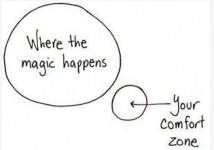WiseGuy
Member
Can anyone tell me were I could find neuroplastic exercises that is specifically target for people who "experience" social anxiety?
Health and Fitness: Neuroplasticity Exercises in Treating Anxiety
The Brain: How The Brain Rewires Itself - TIME
Health and Fitness: Neuroplasticity Exercises in Treating Anxiety
The Brain: How The Brain Rewires Itself - TIME

